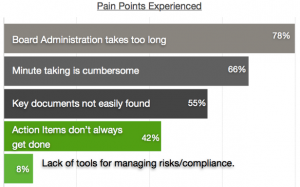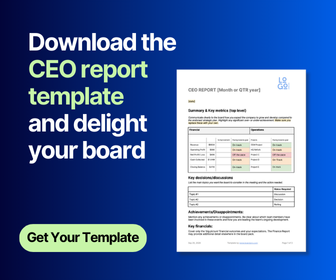Empowering SMEs and Nonprofits with Effective Board Management
Anyone who’s has worked or governed at both ends of the corporate spectrum, understands how the needs of small to medium enterprise (SME) and nonprofits differ dramatically to those in to the corporate sector.
Someone who’s become an expert in this area is Brett Herkt. Starting professional life with Ernst & Young and later working for a major UK bank, he says “I was a small cog in huge process driven wheels at the big end of town”. Then in a diametrically opposed change he became the CFO of a high-tech start-up, where just having cash to make payroll was a job item. During this wild ride, he became CEO and although he successfully grew it 400% to 50 staff, $14m annual revenues and 7-figure profitability, a disagreement between him and the board saw him exit. “The board didn’t understand effective management process in the context of a start-up and nor did I”, says Herkt.
This epiphany lead him to investigate best practice. Seeing firsthand the good, the bad and the ugly of board and management process, Herkt says has now spent the last nine years talking, consulting and developing tools with boards, senior management and administrators across the spectrum, from The Warehouse and 2Degrees Mobile to tech start-ups, Chambers of commerce and charities like the YMCA and Family Planning. He has found a significant gap between the tools and resources available to corporate organisations and those for SME and nonprofits
The organisation’s context drives their needs
“SME and nonprofit have vastly different needs” says Herkt. SMEs and nonprofits simply don’t have the same level of resource available to manage the board cycle. A company with say 20-50 staff means no corporate secretary or corporate counsel, small finance teams and often no executive assistant to the CEO – and limited knowledge of corporate good practice. The organisation is often under-capitalised with ambition that exceeds their capacity.
As a result, board papers and processes are slow because these are prepared and managed on a part-time basis by staff already busy multi-tasking in their day job. For nonprofits, this may even be voluntary.
“The board process is a job that I don’t really have time for yet have to do really well” says
Tama Matene, Administrator, My Future Rocks Trust.
Everyone prepares agendas, papers and minutes with desktop software then distributes via email or shared folders. The CEO sometimes waits on a last-minute email from a manager and doesn’t get to it until 5pm on the day before the meeting. The result is the board gets the information at 6pm, then has to read it and apply strategic thought by 9.30am the next day.
Compounding the issue, is that a proportion of board members are also inexperienced. nonprofit board members are more often industry specific experts than professional directors.
The needs are therefore intensely practical.
For board members
For board members, it’s getting quality information in a usable format in enough time that a decent contribution can be made to strategic matters.
Gordon Buswell, past CEO of ITM, had just retired from corporate leadership in 2015 and was getting involved with SME governance when he said; “What I’m finding in almost every company, is the inability to maintain strategic perspective, and drift away to operational matters”
Bruce Sheppard, founder, Shareholder Association, sits on multiple boards says “I get an email with 12 attachments and have to click them one by one and decide what to print. If I get interrupted half way through it’s a nightmare to remember where I’m up to”.
50% of directors say they received papers too late to prepare well and the use of generic desktop tools added to the problem.
For CEO’s managers and administrators
In polling, Herkt says “the results speak clearly, to the need to get time back whilst delivering quality information to boards. Nearly 80% of managers and administrators assessing board software are doing so to save time”.

“These CEOs often suffer from unsophisticated systems and record keeping that means collecting quality data is difficult and by the time the operational report is complete there is little bandwidth left for addressing strategic matters” says Herkt. As we got to grips with on-the-ground challenges of SMEs and NFPs it was no surprise to see that considerations like risk management and compliance take a back seat to more fundamental matters such as staffing, profitability, growth and funding.
Solutions?
“Having spent nearly ten years of my life, talking with hundreds of SME board members, CEOs and administrators, it’s clear that:
- CEOs need to own the development of management process, despite the tough job of leading a SME or NFP.
- Likewise, Chairs and boards will add value by reviewing and improving their governance practices. Check out Sport NZ who are doing a great job helping their sector.
Brett Herkt is the Founder of BoardPro, board management software that’s designed for SMEs and nonprofits with clients around the world. It delivers up to 75% time-savings to those managing the board cycle and prompts good governance on both sides of the board table.
As seen in Boardroom, Dec / Jan 2018
If you're looking for a tool to streamline your Board processes, check out BoardPro - an all-in-one software solution designed specifically for Boards and busy CEOs!
Schedule a demo with our team today and begin to experience a whole new way of meeting.
Share this
You May Also Like
These Related Stories

Is Board Software Right For My Organisation?

7 benefits of board management software



